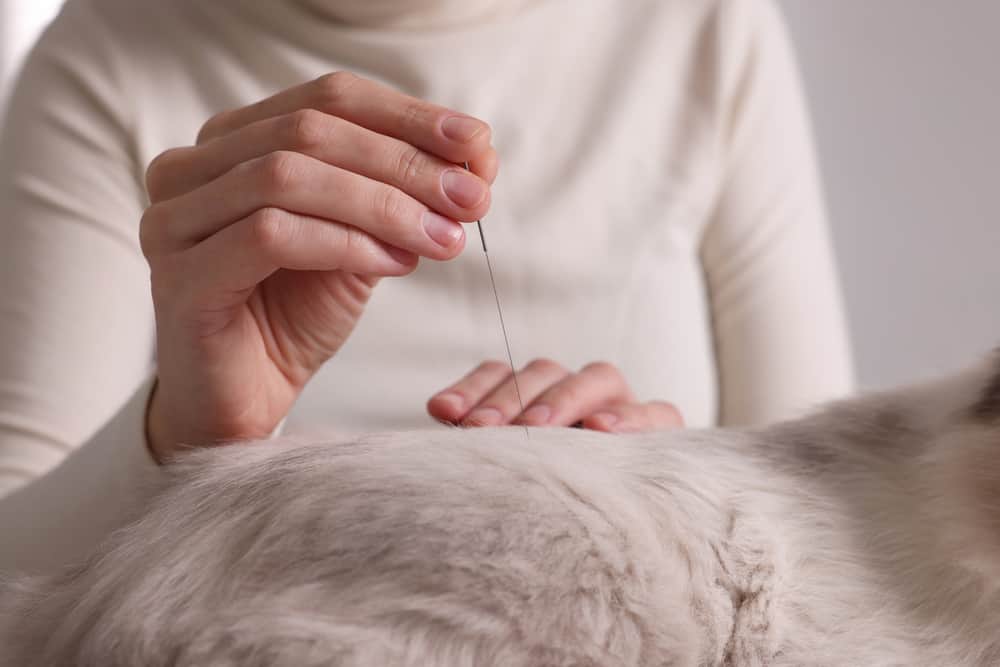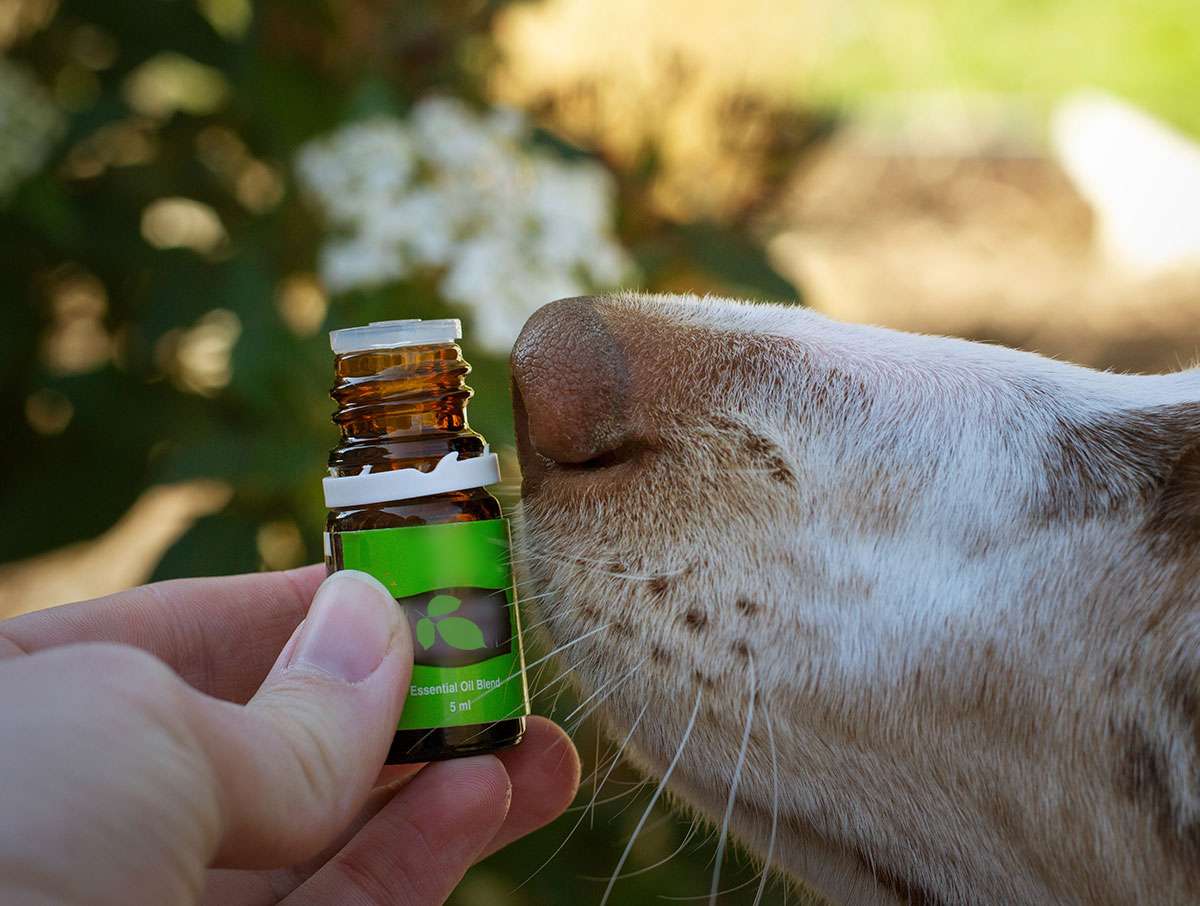Anxiety issues in dogs are more common than you might think, and sometimes they require an alternative approach to tackle them effectively. Ever considered acupuncture for your anxious dog? Before you laugh it off or conjure up images of your furry friend looking like a pincushion, let’s dive into what it really entails.
Acupuncture and Behavior Modification: A Dynamic Duo
Anxiety in dogs can stem from various factors – fear, separation anxiety, even age-related cognitive decline. And while it might sound like something from a wellness retreat, acupuncture can be a game-changer for our four-legged friends.
Picture it like this: acupuncture is like tuning a piano, getting everything balanced and harmonious. Tiny needles stimulate certain points on the body, helping to balance energy, enhance nervous system health, and release those feel-good endorphins. It doesn’t hurt, and many dogs even find it super relaxing.
Now, if you pair acupuncture with behavior modification techniques, it’s like giving your anxious dog a double helping of calm. Techniques like desensitization and counter-conditioning, guided by a Behavior Consultant, can help your dog overcome their anxiety triggers. It’s like equipping your dog with an emotional toolbox to handle situations that were previously scary.
Why Consider Acupuncture for Your Anxious Pup?
Beyond making your dog feel like they’ve just had a doggy spa day, acupuncture can offer a whole host of benefits. It can help improve sleep quality, reduce any pain, and it can even boost the effect of other treatments.
The most significant benefit is its potential to reduce the need for medication in more severe cases of anxiety. Now, don’t get me wrong, medication can be a lifesaver for some dogs, but if we can achieve the same calm, happy pup with fewer drugs, that’s a win, right?
Acupuncture Treatments: A Timeline
Just like you wouldn’t expect a single trip to the gym to turn you into a fitness model, treating anxiety with acupuncture isn’t a quick fix. It’s a process that requires patience and consistency.
Typically, you’d start with a series of treatments close together, think weekly sessions for about 4-6 weeks. After that, maintenance treatments every few weeks or months may be necessary. Of course, every dog is an individual, and your veterinary acupuncturist will tailor the treatment plan to your dog’s specific needs.
What to Expect During an Acupuncture Session
I know it might sound daunting, but acupuncture sessions are typically straightforward and even relaxing for your pet. The veterinary acupuncturist will gently insert small needles into specific points on your dog’s body. Most dogs tolerate this well and often relax or even fall asleep during treatment.
Each session can last between 20-60 minutes. So, it might be a good time for you to catch up on your favorite podcast while your dog gets their zen on.
Any Potential Side Effects?
As with any treatment, there are potential side effects, but they are usually minimal with acupuncture. Some dogs might feel a bit sore or fatigued, or you may notice a temporary increase in anxiety symptoms.
But don’t worry, regular monitoring and good communication with your acupuncturist will help manage any potential side effects. If anything feels off, don’t hesitate to speak up – you know your dog best!
Does Acupuncture Really Work for Dogs?
Good question! Research has shown that acupuncture can be effective in reducing anxiety in dogs. Of course, like any treatment, it won’t be a silver bullet for every dog, but many pet parents and veterinarians report seeing a noticeable improvement.
Anecdotal evidence can often be just as telling. There are countless stories out there of dogs who were once trembling, tail-tucked furballs of fear becoming relaxed, tail-wagging pets following a consistent acupuncture regimen.
Can Acupuncture Do More for Your Dog?
Absolutely! Besides its calming effects, acupuncture can provide a bunch of other benefits for your pet. Think of it as a wellness boost that goes beyond just treating anxiety.
- Pain and Inflammation Relief: Acupuncture can help manage pain, particularly for conditions like arthritis, which are common in our older canine companions.
- Improved Sleep: Ever had a sleepless night because your anxious pup was pacing? Acupuncture can help improve their sleep quality (and yours!).
- Boosts Effectiveness of Other Treatments: If your dog is on medication or undergoing other treatments, acupuncture can enhance their effects.
- Overall Well-being: Acupuncture promotes overall balance in the body, leading to a happier, healthier pooch.
Before You Jump In: Some Words of Advice
So, you’re thinking of giving acupuncture a shot for your anxious dog? Fantastic! Here are a few nuggets of advice before you dive in:
- Consult with your regular vet first. They know your pet’s health history and can provide valuable insight and potential referrals.
- Research, research, research. Make sure to choose a certified veterinary acupuncturist.
- Be patient. The road to improvement isn’t always linear and often requires consistent sessions.
Finding the Right Veterinary Acupuncturist
Finding the right professional for your pet is crucial. Start by asking your regular vet for referrals. If they can’t provide any, don’t fret. Check out online directories of certified veterinary acupuncturists. The American Academy of Veterinary Acupuncture (AAVA) and the International Veterinary Acupuncture Society (IVAS) are two reliable sources to consider.
Remember, the goal here is to make your anxious dog feel more at ease, more of the time. If acupuncture can help achieve that, it’s worth exploring, don’t you think? Anyway, enough from me, let me know if you decide to give it a shot. Give your pup a belly rub from me, and here’s to a calmer, happier dog!
For further information on dog acupuncture, check out these sites:




Leave a Reply